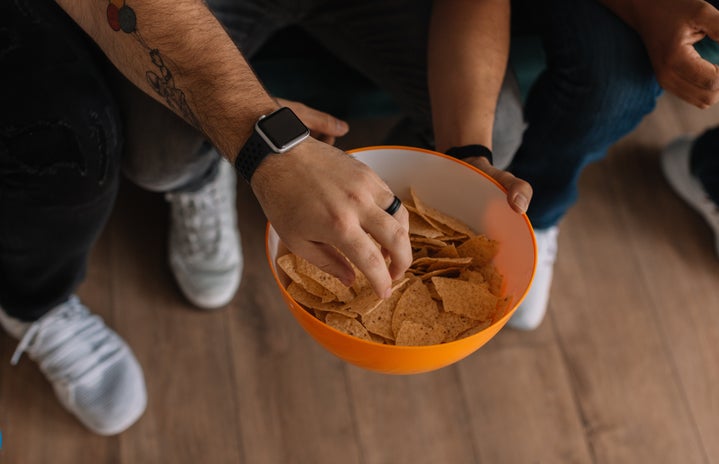A recently published online survey found that lockdown measures imposed to stop the spread of COVID-19 increased emotional eating amongst the Italian population.
The results of the survey realized in May 2020, but only published online on Jan. 14, show that higher levels of negative emotions, such as anxiety and depression, as well as poor quality of personal relationships and poor quality of life during lockdown, led to increased self-reported emotional eating in Italy.
But this spike of emotional eating is not exclusive to Italy. As emotional distress caused by the pandemic is occurring all over the world, the eating behaviours of people worldwide have been impacted.
“The COVID-19 pandemic offers a ‘perfect storm’ for declining mental health and result (sic) in negative outcomes on eating,” wrote the Association for Canadian Studies (ACS) in a study published last November.
In the study, the ACS found that Canadians who reported being very afraid of getting the virus were most likely to say that they’ve been eating more.


This shift in the eating behaviour of Canadians did not come as a surprise to experts. In fact, at the beginning of the pandemic back in April, Registered Dietitian and CEO of Health Stand Nutrition Consulting Inc., Andrea Holwegner, warned that some people may be inclined to eat their emotions amid the pandemic.
“Emotional eating is something we all do … We’ve all eaten for comfort before,” Holwegner said, quoted in a Global News article.
Now, in the midst of this pandemic, those predictions could not be more true as many people turn to nutritionists for help. Last December, Registered Dietitian Cheryl Strachan stated in her blog that emotional eating was the “number one concern” her clients raised with her in consultations.
According to Strachan, emotional eating is not all bad. “Eating to soothe our frayed nerves and deliver some much-needed pleasure on a bleak day is absolutely okay,” she wrote in another blog post. “There are certainly worse ways to cope with a global pandemic.”
However, Strachan does note that emotional eating can become problematic and there are a few signs that point to a need for change in one’s eating behaviour.
Find out the signs and whether or not you’re an emotional eater by taking this short quiz!
The good news is, there are ways to move away from emotional eating and get back into healthier eating habits. Here are a few tips from experts:




